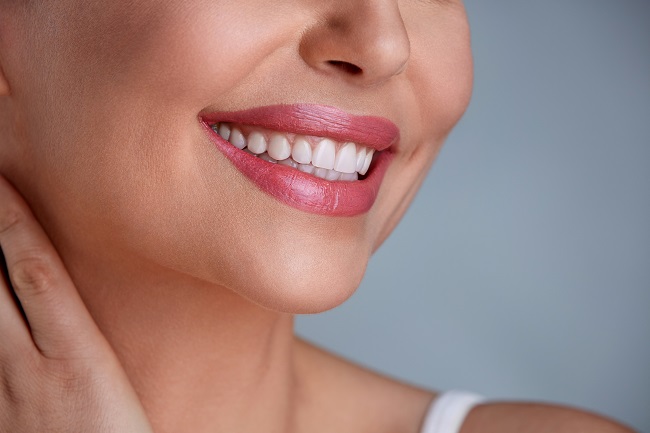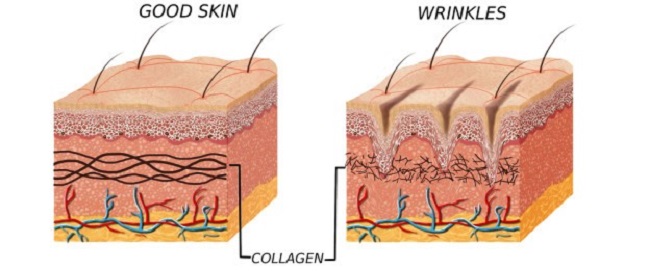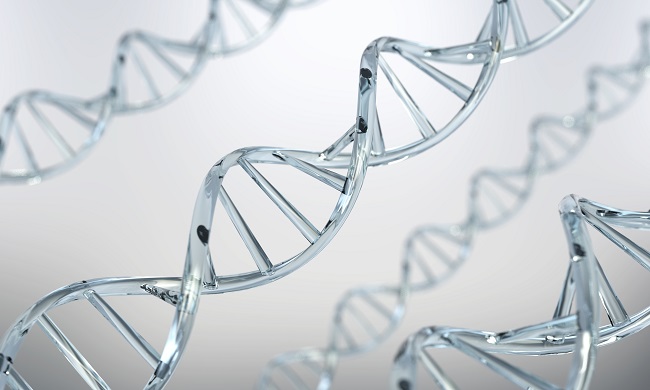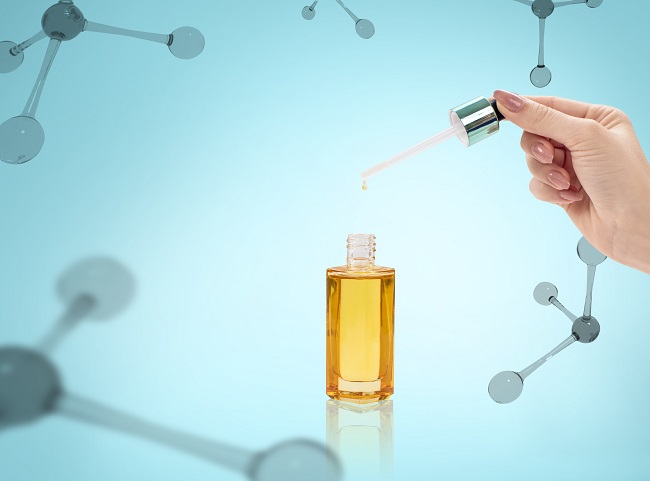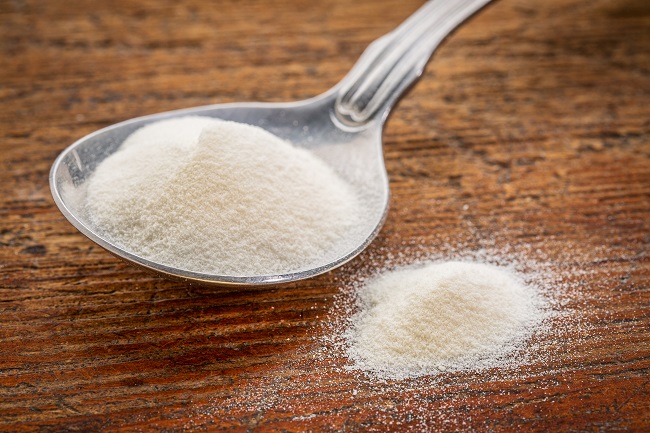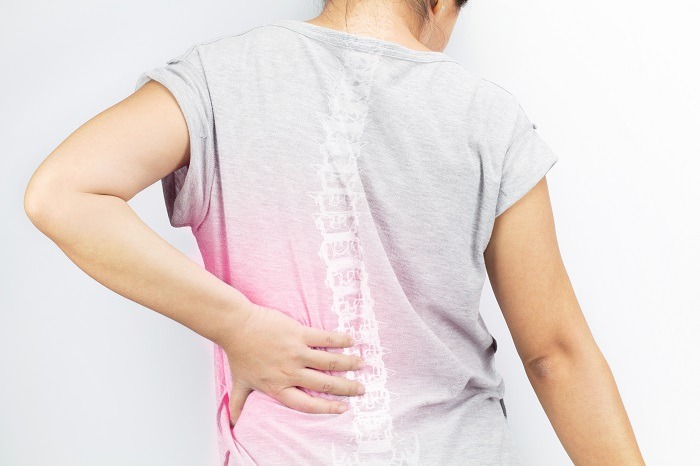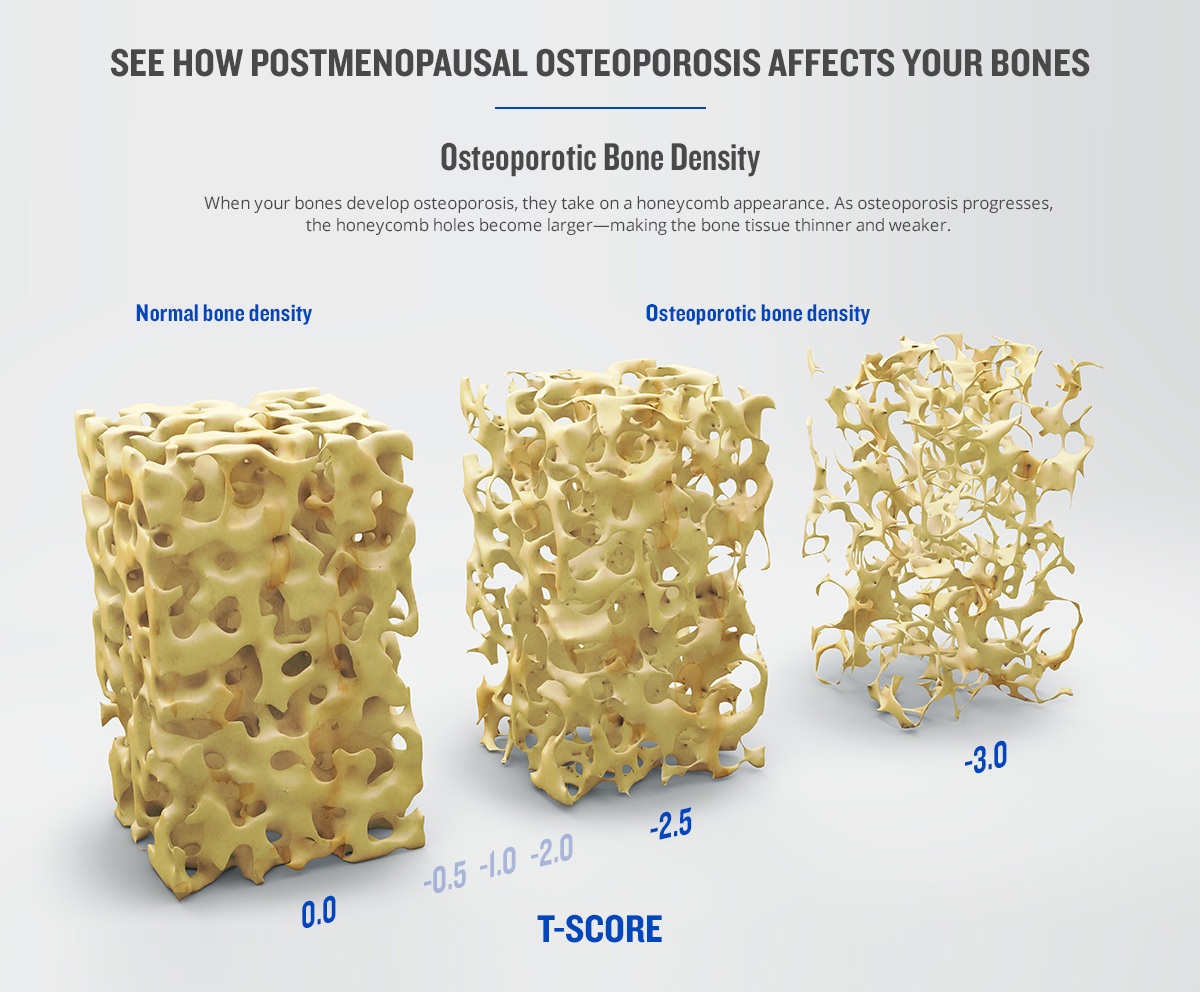What is the first thing you think of when you hear the word “collagen?” More likely than not, your answer was “skin care,” wasn’t it? If so, it’s completely understandable.
Over the last couple of decades, skin care companies and beauty serum entrepreneurs have all touted collagen as being in their product, thus using it will give you a magical fountain of youth.
They are partially correct; collagen is the glue that essentially holds our bodies together. The more collagen in our bodies, the more youthful our skin, hair, joints, and bones look and feel.
However, where the claim becomes misleading is that it is their product – and their product only – that can get your skin back to its youthful healthy glow.
The truth is, many topical products on the market do not have the recommended amount of collagen to affect change in your skin’s elasticity and firmness, thus reducing fine lines and wrinkles. And many products don’t contain collagen peptides small enough that they can enter the skin directly.
What Is Collagen, Exactly?
Collagen is the most common protein in the human body and provides the body’s structure and form. It is the majority of protein in our bones, skin, joints, teeth, arterial walls, and other organs which are vital to our health.
If collagen sounds important, it’s because it is. You also now understand why it’s referred to as our body’s glue!
Unfortunately, over time, our body’s ability to produce collagen slows down around age 30. Years ago, human’s diets naturally boosted collagen and collagen production. Before the Industrial Revolution, when people were hunting for their own meat, they did not leave much to waste from the animal. The meat was cooked in pots with the bones still attached, the skin and fat of the animal was consumed, and even internal organs were ingested. All of these parts contained collagen.
In today’s society, we shy away from eating the skin and fat because it’s “too fatty,” and we are told that boneless chicken breasts are leaner than bone-in thighs. Our entire outlook on how we consume animal products has been re-wired and it hasn’t worked out without its own pitfalls. There are other factors that also play a part in our loss of collagen-producing abilities like damage due to harmful UV rays and sun exposure, age-related hormone changes, free radicals, and smoking.
However, taking a hydrolyzed collagen supplement like Collagen Complete restores your body’s glue – making you feel as if you’ve rewound the hands of Father Time.
Wait, What is Hydrolyzed Collagen?
Both gelatin and hydrolyzed collagen are both derived from collagen. Gelatin is actually boiled collagen that has been dried and turned into a powder, the result is the same you would find in a homemade bone broth. Do you know the jellylike substance that would float to the top of the pot when your grandmother was making homemade chicken or beef broth? That’s gelatin. By heating cooked collagen to high temperatures and treating it with enzymes, hydrolyzed collagen is obtained. You’re basically taking gelatin one step further in the break-down process to get collagen peptides.
The high temperatures and enzymes break the bonds between amino acids while keeping them intact. Due to the process of turning collagen into a dry powder, it is easier to digest because the body can absorb it faster. For this reason, hydrolyzed collagen works perfectly for people with digestion problems.
Okay, So Is All The Hype About Hydrolyzed Collagen For Skin Real?
The short answer: Yes.
Hydrolyzed collagen is easy to digest and more than 90-percent of it gets absorbed by the body within six hours of ingestion. Most of it is accumulated in skin and cartilage, as well as in the small peptides in the blood. It contains 18 essential amino acids, including the very important proline, glycine, and hydroxyproline. Studies have shown that orally ingested hydrolyzed collagen rises the density of collagen in the human skin, which eventually results in improved smoothness, moisture, and skin elasticity.
Another benefit of hydrolyzed collagen is that it works pretty well when it comes to preventing skin damage from the sun’s harmful UVA and UVB rays.
A study published in the Journal of Medicinal Food in 2015 shows that ingesting hydrolyzed collagen on a regular basis leads to an improvement of the skin in the case of women suffering from moderate cases of cellulite.
In a new large double-blind, placebo-controlled clinical study published recently, women took 2.5 g of a particular hydrolyzed collagen peptide once daily for eight weeks. At the end of the period, researchers recorded a 20-percent reduction in wrinkle depth around the participants’ eyes.
Hydrolyzed collagen has already proved its nutritional and therapeutic value via clinical studies and it is one of the traditional remedies that do wonders for your skin, joints, digestion, and so much more.
There are no side effects associated with the consumption of hydrolyzed collagen, which means that it is safe to be consumed by adults, children, and even animals (The substance is used in veterinary medicine as well, as it has been shown that it contributes to the regeneration of cartilage and tissues).
There Are Three Different Types Of Collagen Most Beneficial For Skin
There are three distinct types of fibrillar collagen that are the most common and that you have heard about the most when it comes to skin care: Type I, Type III, and Type IV.
Fibrillar means “various threadlike fibers or filaments that are constituent parts of a cell or larger structure.” Specifically, fibrillar collagen is found is the dermis (the thick layer of living tissue below the epidermis that forms the true skin, containing blood capillaries, nerve endings, sweat glands, hair follicles, and other structures.)
- Type I:
The most abundant collagen of the human body. Type I is present in scar tissue, tendons, ligaments, muscle, the organic part of bone, the teeth, joints, organ capsules, and of course, skin. This is the type that you have seen advertised the most in beauty and health ads that claim to be a miracle serum that will take decades off your look and reduce the number of fine lines and wrinkles.
- Type III, Alpha I:
Type III is commonly found alongside Type I because it is abundant in reticular fibers. Reticular fibers are found in connective tissue. These fibers then crosslink to form a network that as a supporting mesh in soft tissues such as liver, bone marrow, and the tissues and organs of the lymphatic system (part of the circulatory system and a vital part of the immune system).
- Type IV:
Type IV collagen is a type of collagen that is found primarily in the skin within the basement membrane zone. The type forms the basal lamina, a layer on a collection of extracellular molecules secreted by cells that provides structural and biochemical support to the surrounding cells. Type IV lacks the regular glycine in every third residue necessary for the tight, collagen helix so the fibers link head-to-head and form as a sheet instead. The arrangement is slightly sloppier with but the overall Type IV conformation is structurally more pliable, relative to the other collagen types.
To date, 28 types of collagen have been identified in animal protein. For more info on all types, click HERE. Over 90-percent of the collagen in the body is of Type I-IV, with the most abundant being Type I.
Are There Other Studies That Prove Collagen Helps Skin?
Over the last 10 years or so, there has been an increase in the number of studies related to collagen and the skin. It make sense when you think about it: If Company Z says their collagen supplement will give you X results, you better believe scientists and scholars are going to make sure what they claim is proven!
One study that researched the oral supplementation of specific collagen peptides and the beneficial effects on human skin physiology, which was a double-blind, placebo-controlled study, concluded: “After 8 weeks, hydrolyzed collagen results in significant improvements of skin elasticity, moisture, and smoothness.”
Another study on the effects of a nutritional supplement containing collagen peptides on skin elasticity, hydration and wrinkles found: “Hydrolyzed collagen results in significant improvement in wrinkle depth, improvement in elasticity and hydration of the skin.”
Yet another look at the effects of collagen peptide ingestion on UV-B-induced skin damage came to the conclusion that “Hydrolyzed collagen prevents skin damage from UVA and UVB sunlight exposure.”
A list of several studies involving hydrolyzed collagen and Hyaluronic Acid can be found on the Collagen Complete website on the studies page by clicking HERE.
What Does Taking A Collagen Supplement Specifically Do For Your Skin?
-
Diminish wrinkles and fine lines:
One of the biggest complaints about aging are the fine lines that begin to appear around the eyes and mouth anytime after the age of 30. Gradually, these fine lines become deeper wrinkles. Exposure to the sun, pollution, poor health choices, and diet can all speed up the process of the collagen levels in the skin decreasing over time. A study in 2013 that was published in the journal “Skin Pharmacology and Physiology,” found that oral collagen supplements may help boost skin elasticity, thus reducing the number of fine lines and wrinkles.
-
Improve skin tone:
Every woman wants the flawless skin they once had in their 20’s, before their collagen levels began decreasing. Great skin not only looks good, but improves self-esteem and confidence. Taking collagen pills or powder can give a flawless complexion and makes women look younger. While collagen is mainly found in the dermis, the amino acids in hydrolyzed collagen help keep the outer layers of skin smooth and healthy. The nourishment is from within, not just a topical “quick fix.” Maintaining the levels of alanine, glycine, and hydroxyproline that make up collagen can keep small veins and arteries from appearing, and help you maintain a youthful and flawless complexion.
-
Moisturizes dry skin:
Dry skin is a common problem among all age groups and genders, but it can be easily treated by taking a daily collagen supplement. The American Academy of Dermatology (AAD) reports that there are several factors that can cause dry skin including environmental effects, aging, and lifestyle choices. Although you can change your lifestyle to a healthier one by diet and exercise, the loss of collagen due to aging and some environmental factors like sun exposure (particularly if you live in a sunny, warm climate year round) can’t be avoided. Collagen supplements contain the amino acids (Collagen Complete contains all nine essential amino acids) that your skin is missing, which helps moisturize and hydrate your skin. Skin cells plump up by absorbing water from surrounding collagen, making it excellent for your face and giving it a youthful glow.
-
Skin tightening:
Health officials have found that collagen peptides are a safe and natural ingredient that can be easily digested to improve the appearance of your skin. Just like collagen helps to moisturize and hydrate skin, taking a collagen supplement will help boost collagen production and improve your skin’s elasticity. Unlike creams and lotions that only improve the outer layer of the skin, these supplements will increase collagen levels in the dermis. This important layer is responsible for keeping your skin tight and firm, and to ensure a flawless complexion at any age.
-
Minimize scarring
Regardless of your age group, scars from acne and other factors such as injuries or surgical procedures can make anyone feel insecure. The amino acids found in collagen help minimize the appearance of these discolored spots and help skin naturally repair itself. The National Institute of Arthritis and Musculoskeletal and Skin Diseases (NIAMS) also recommends that daily ingestion of a collagen supplement will help promote faster healing by supporting healthy tissue formation, thus speeding up the healing process naturally.
Collagen Is Your #1 Skin Booster
Some of the damages caused by time can be reversed if you give it time and the proper nourishment, not just through the foods you eat but by making sure your body is getting the glue it needs to hold everything together – collagen!
Science has long-supported the use of collagen for skin quality and improvement, but as collagen has been a “hot topic” for skin care and health, more and more customers are backing up the scientific research through their own satisfaction with taking a collagen supplement.
Regain your youthful glow, moisture, firmness, and naturally reduce fine line and wrinkles with Collagen Complete and start your skin’s rejuvenation process today!
The post What Are The Main Reasons To Take Collagen Supplements For Skin? appeared first on Collagen Complete.
source http://collagencomplete.com/collagen-supplements-skin/

